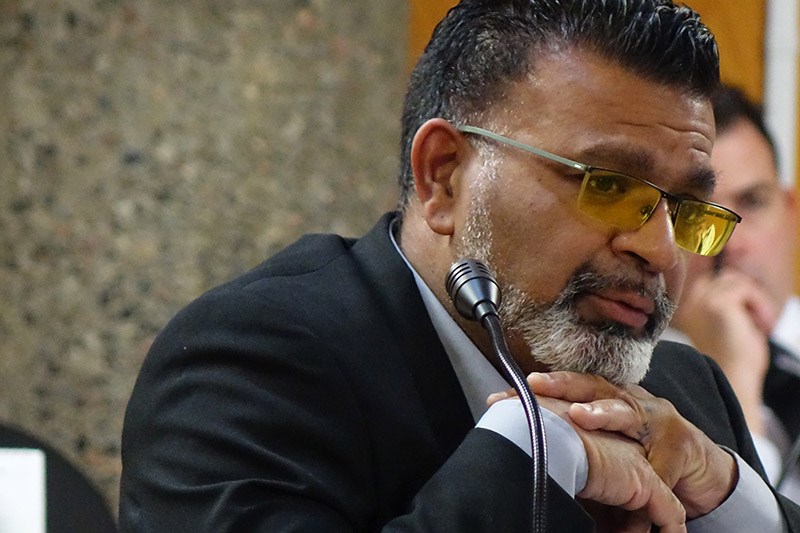Communities Economic Development Fund (CEDF) CEO Oswald Sawh appeared before Thompson city council Oct. 28 to update them on what the organization is currently up to and what it plans to achieve in the future.
A Manitoba Crown corporation with offices in Thompson, The Pas and Flin Flon, CEDF offers loans to commercial fishers and lent about $100 million in business development loans between 1992 and 2017, with more than $15 million of that amount going to businesses in Thompson. CEDF is also the provincial government’s designated agency for the implementation fo the Look North economic development strategy, which aims to grow Northern Manitoba’s economy by giving northern entrepreneurs the tools to make their own business dreams come true.
In support of that responsibility, CEDF has hired seven Look north staff.
“We’ve basically doubled our organizational size in the last two months and the staff have both functional and geographical responsibilities,” said Sawh, noting that the Look North region includes 28 First Nations, 13 Indigenous and Northern Relations communities and 11 urban industrial communities such as Thompson, The Pas, Flin Flon, Snow Lake and Churchill.
Look North focuses on six key areas in its quest to develop a “culture of commerce” - awareness of and interest in self-employment as a viable way to make a living. Those areas include mineral and resource potential, Indigenous engagement and partnerships, strategic infrastructure investment, housing, enterprise ecosystems of support, and education and training. Sawh said Indigenous engagement is one of the foundations of Look North, given that Northern Manitoba is mostly Indigenous people, and that infrastructure such as internet and housing is key to developing the northern economy.
“High-speed internet is not a luxury, it’s not something that would be nice to have, we find that’s a basic principle when it comes to economic development,” he said. “Housing is heavily tied to economic development. If people … feel that there’s a community that does not have affordable housing, it makes it a real challenge to be able to attract labour to that community.”
In its effort to encourage a culture of commerce, CEDF is focusing on communicating and marketing community-based events, business development, community-building and engagement, access to capital, building capacity and innovation.
“In partnership with the World Trade Centre we went up to a trade show up north in Rankin Inlet [Nunavut],” said Sawh. “We brought six other northern businesses with us basically to introduce them to that market and see what options they had to expand their products and services up north."
Coun. Andre Proulx said he has personally taken advantage of CEDF’s resources for his own business in the past, while Mayor Collen Smook, who is a member of the CEDF board, said community involvement is vital for the organization’s success.
“It’s very important that we are part of the board and part of the decisions that are being made for the north.”
CEDF’s 2018 annual report shows that it approved 13 business loans with a total value of about $1.3 million in 2017, down from 36 loans with a value of nearly $5.8 million in 2016. No new business loans were approved in 2018 or 2019 because the business loans program was under review by the provincial government
CEDF is working on resource optimization strategies for forestry and fishing, two of the north’s resource industries, and has provided recommendations to the province regarding the currently inactive business loans program, Sawh said.
“We’re hoping by the end of this year that we will be having a meeting with the province to discuss that report that was sent to them. The board strongly supports the ability for CEDF to be able to provide business loans again. We’ve always been able to provide commercial fishing loans … but we’re hopeful. We’ll have that discussion with the province and definitely once we know about our moratorium we will be providing an update.”




